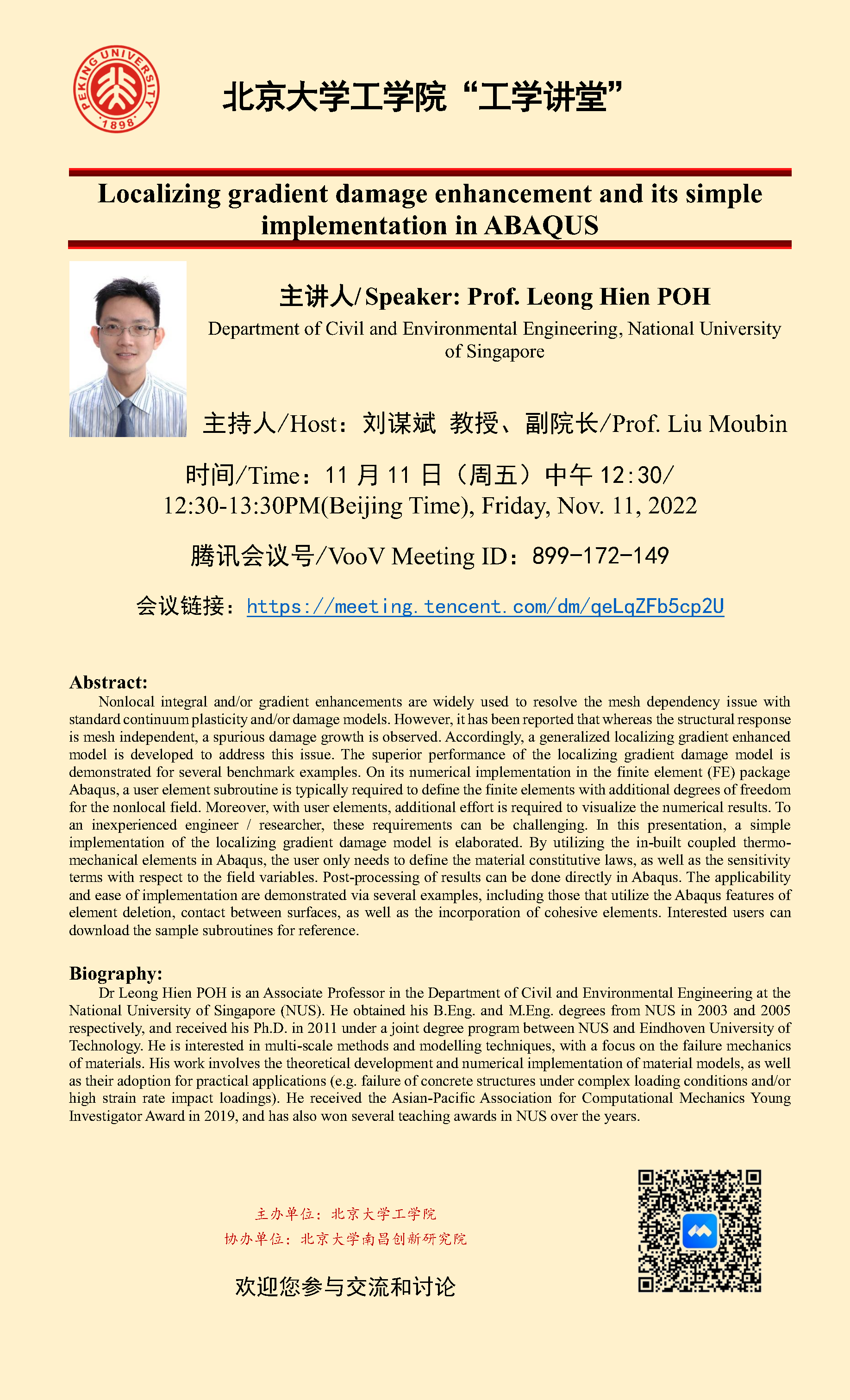Speaker: Prof. Leong Hien POH, Department of Civil and Environmental Engineering, National University of Singapore
Host: Prof. Liu Moubin, College of Engineering
Time: 12:30-13:30 pm, November 11 (Friday), 2022, GMT+8
Venue: Tecent Meeting ID ID:899-172-149
Abstract:
Nonlocal integral and/or gradient enhancements are widely used to resolve the mesh dependency issue with standard continuum plasticity and/or damage models. However, it has been reported that whereas the structural response is mesh independent, a spurious damage growth is observed. Accordingly, a generalized localizing gradient enhanced model is developed to address this issue. The superior performance of the localizing gradient damage model is demonstrated for several benchmark examples. On its numerical implementation in the finite element (FE) package Abaqus, a user element subroutine is typically required to define the finite elements with additional degrees of freedom for the nonlocal field. Moreover, with user elements, additional effort is required to visualize the numerical results. To an inexperienced engineer / researcher, these requirements can be challenging. In this presentation, a simple implementation of the localizing gradient damage model is elaborated. By utilizing the in-built coupled thermo-mechanical elements in Abaqus, the user only needs to define the material constitutive laws, as well as the sensitivity terms with respect to the field variables. Post-processing of results can be done directly in Abaqus. The applicability and ease of implementation are demonstrated via several examples, including those that utilize the Abaqus features of element deletion, contact between surfaces, as well as the incorporation of cohesive elements. Interested users can download the sample subroutines for reference.
Biography:
Dr Leong Hien POH is an Associate Professor in the Department of Civil and Environmental Engineering at the National University of Singapore (NUS). He obtained his B.Eng. and M.Eng. degrees from NUS in 2003 and 2005 respectively, and received his Ph.D. in 2011 under a joint degree program between NUS and Eindhoven University of Technology. He is interested in multi-scale methods and modelling techniques, with a focus on the failure mechanics of materials. His work involves the theoretical development and numerical implementation of material models, as well as their adoption for practical applications (e.g. failure of concrete structures under complex loading conditions and/or high strain rate impact loadings). He received the Asian-Pacific Association for Computational Mechanics Young Investigator Award in 2019, and has also won several teaching awards in NUS over the years.
Source: College of Engineering
